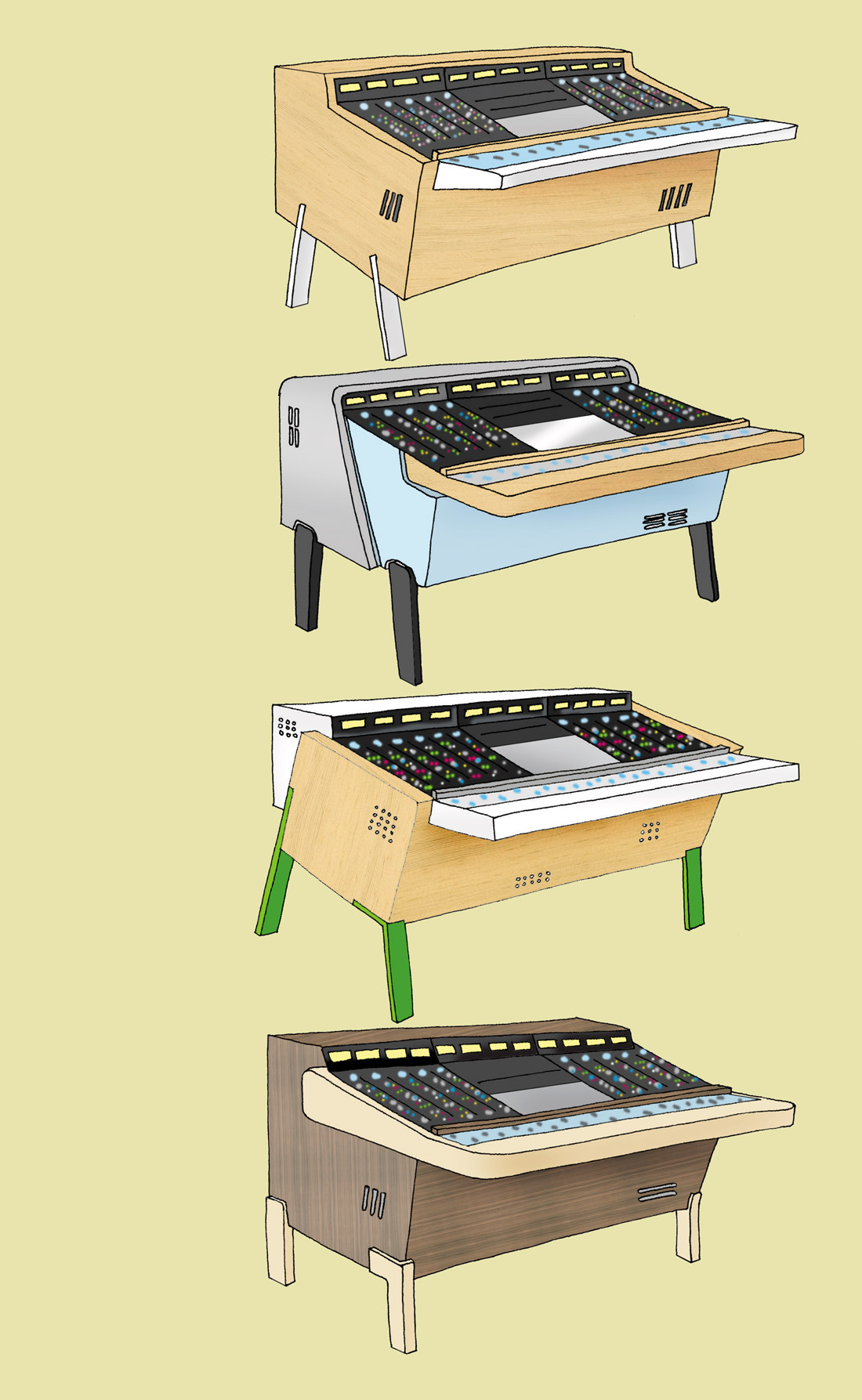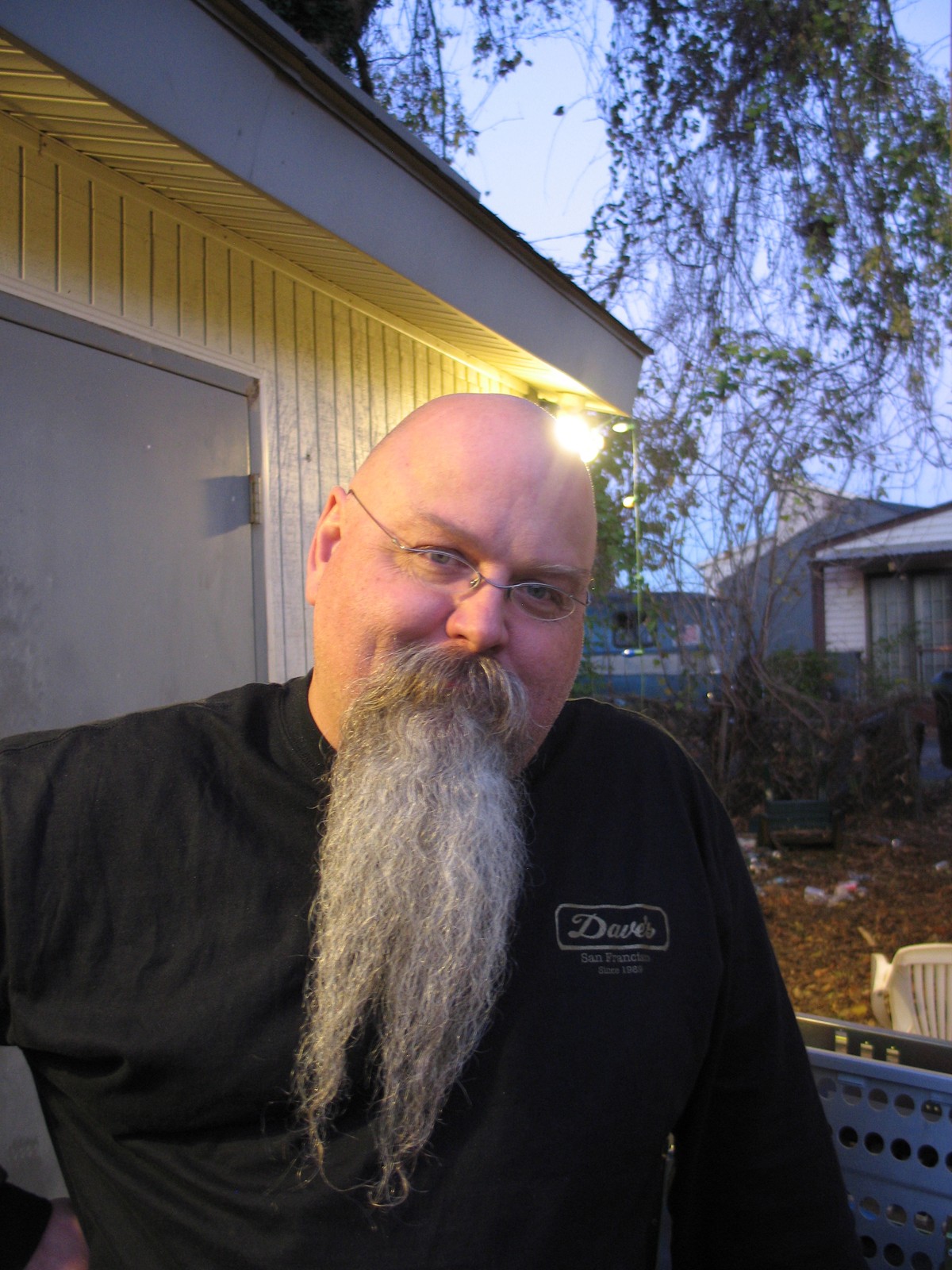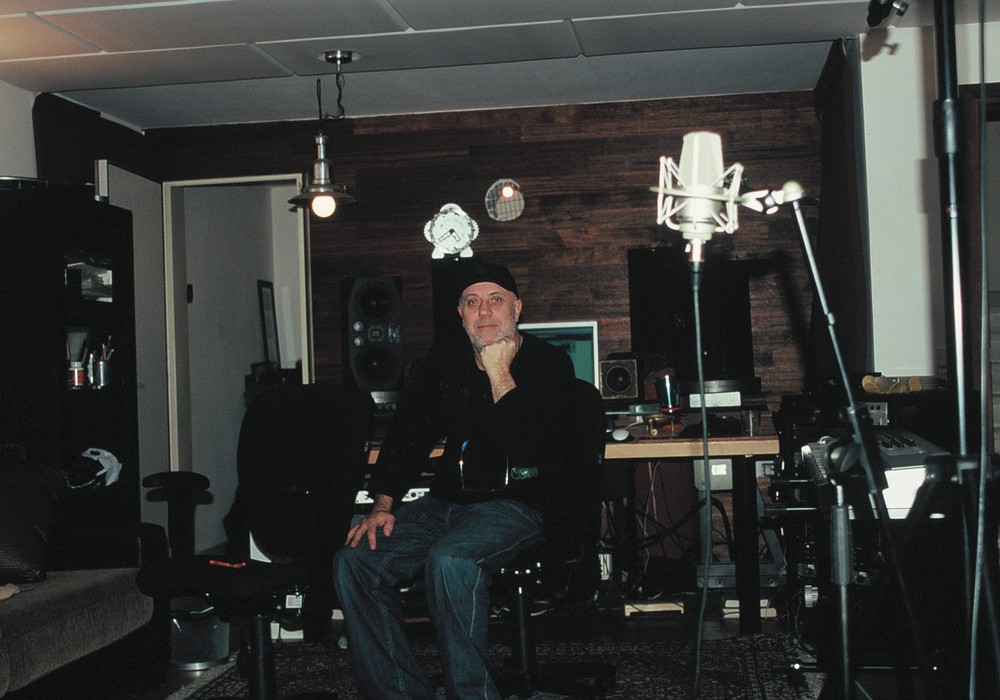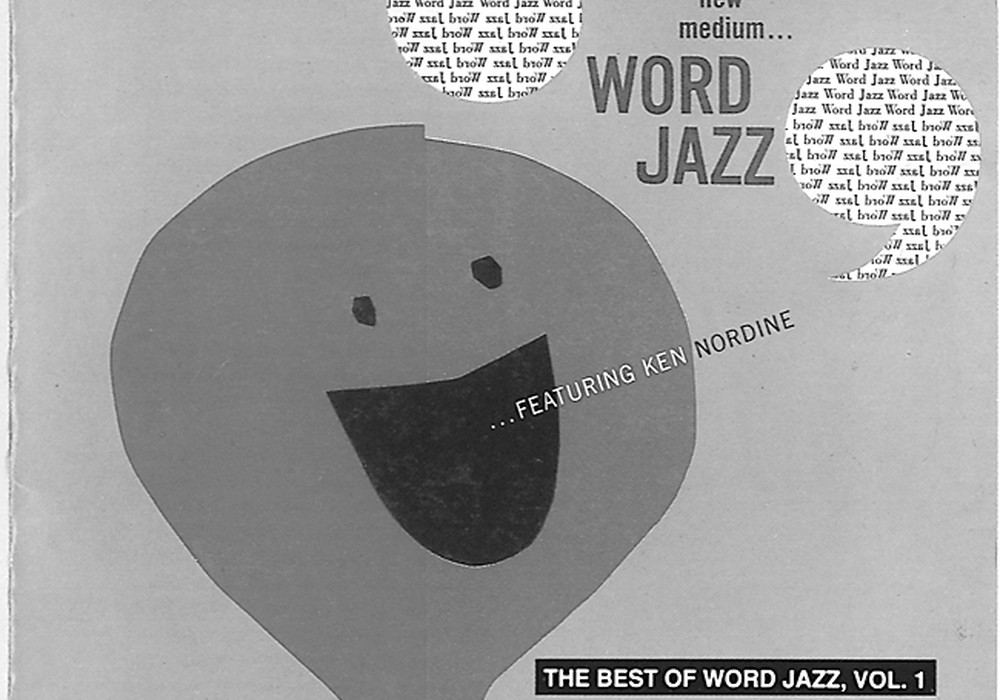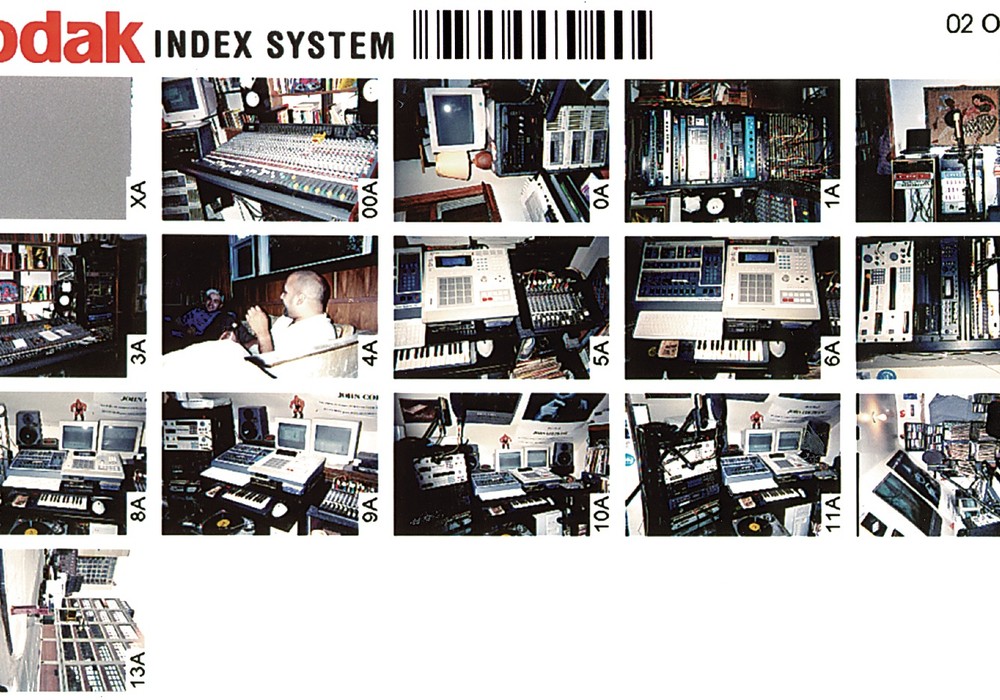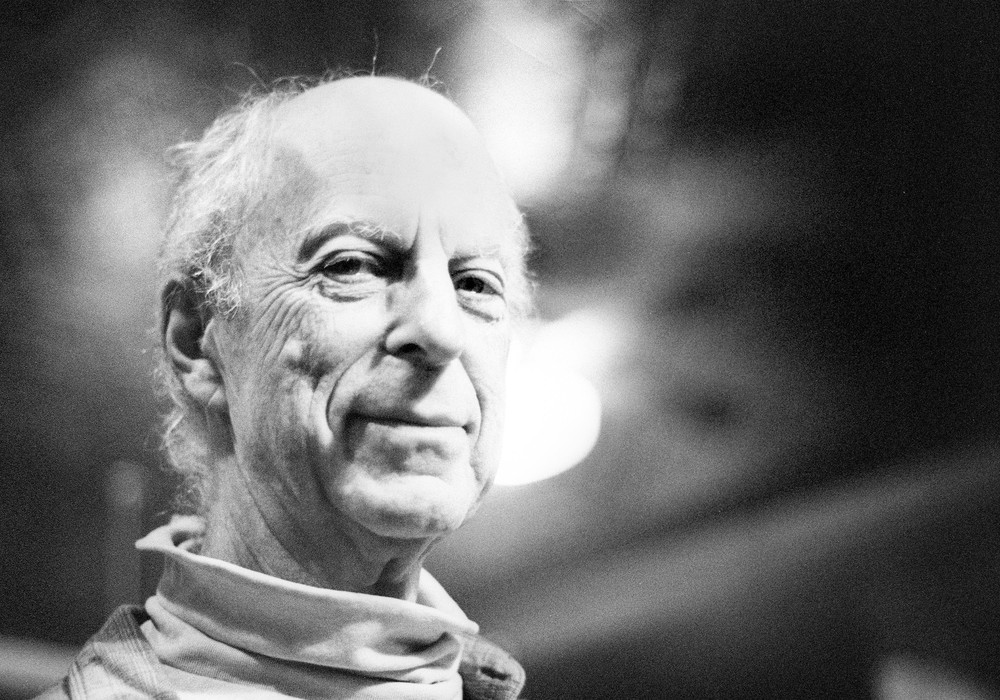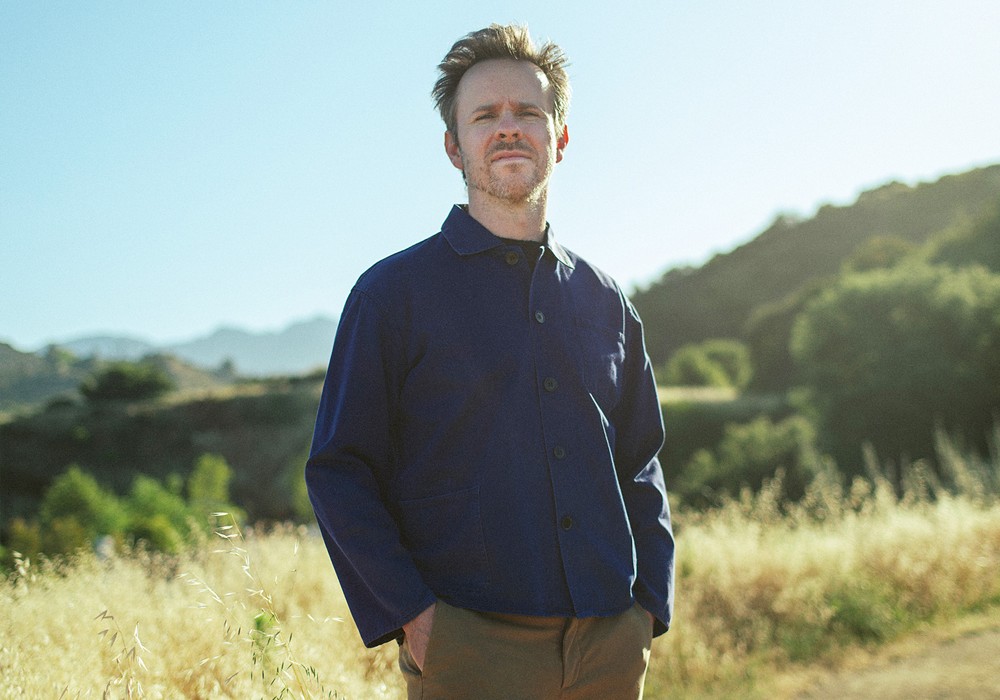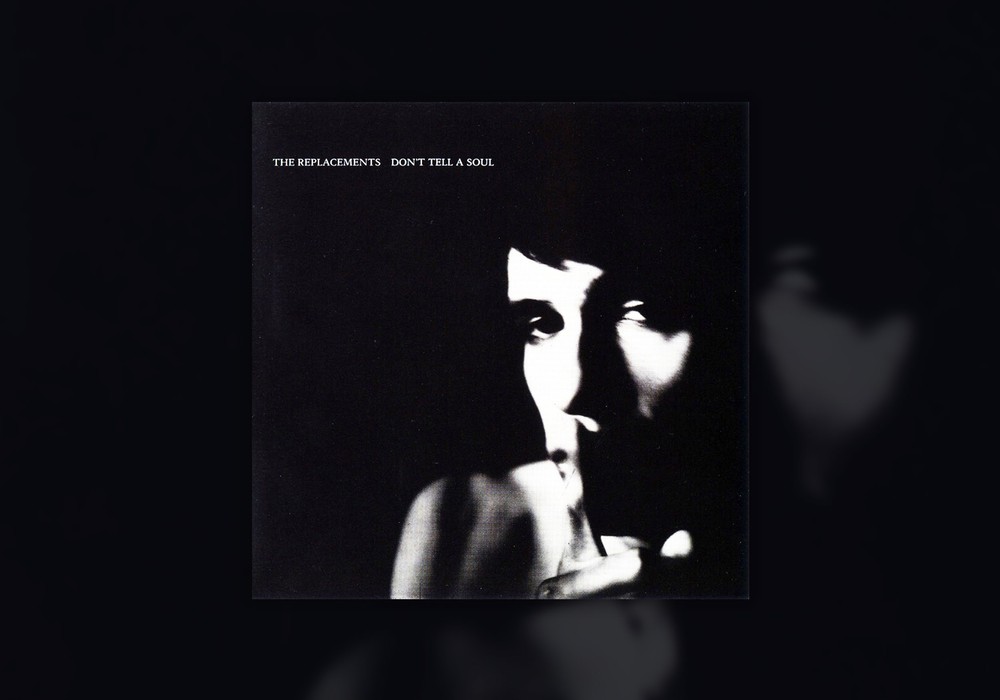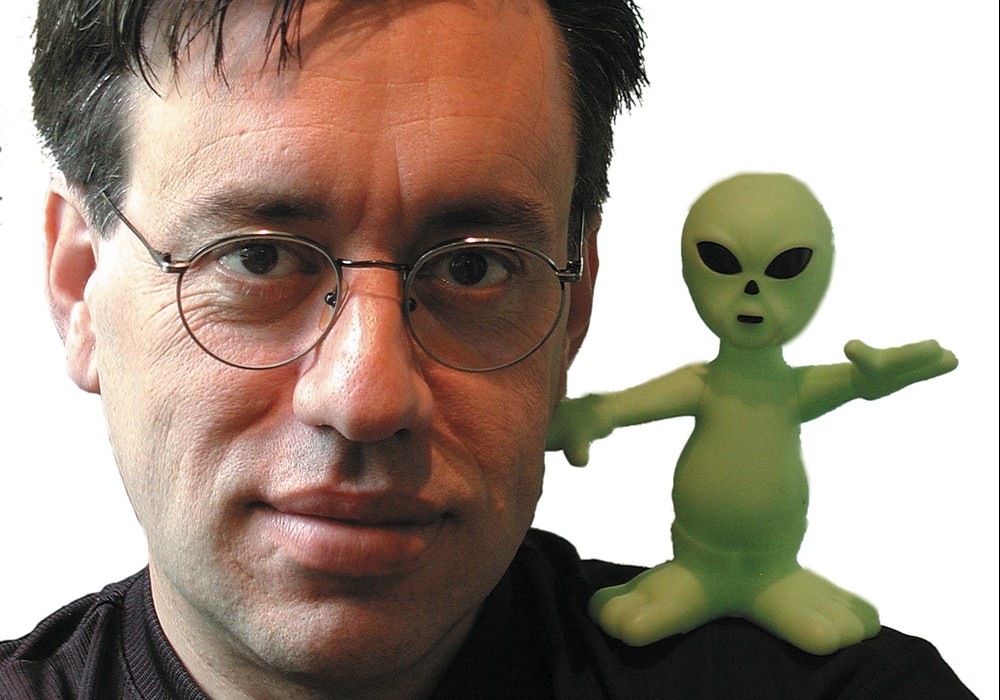Too often people assume that those of us in the field of music recording had a distinct idea of what we wanted to do when we started. The truth is almost always that it's a wild and unpredictable path we end up on. Vance Powell is a perfect example. Starting off in live sound (from local bands to working with such diverse acts as Tammy Wynette, Martina McBride and Jars of Clay) he also had a parallel path in small recording studios along the way. When an opportunity came up to help build (what would become) one of the largest studio complexes in the world, he was there, becoming chief engineer for Nashville's Blackbird Studios. Projects outside Blackbird eventually beckoned. Vance started working extensively with Jack White III on his groups The Raconteurs, The White Stripes, The Dead Weather as well as many of Jack's production jobs, including Wanda Jackson's new album, The Party Ain't Over and a slew of 7-inch singles for Jack's Third Man Records, including a new release by Dungen (see their interview this issue). His work has earned him three Grammy awards (Jars of Clay, Buddy Guy, and The Raconteurs). Along the way he's recorded with a wide variety of artists, including Keb' Mo', Martina McBride, The Secret Machines, Karen Elson and even Jack White and Alicia Keys' over-the-top production of "Another Way To Die" from the James Bond film, Quantum of Solace. I ran around Nashville on a crazy tour with Vance for 11 hours one day and, near the end, we sat down to chat at Sputnik Sound, a fun studio space he shares with producer Mitch Dane.
Where the heck did you come from?
I grew up in Joplin, Missouri. I went to a tech school; I took electronics, so I was with the kids who welded — there was a nerdy, redneck thing going on. I graduated in 1982. At that point, I didn't want to go into electrical engineering — I wanted to be a computer programmer. But I was also the kid who had the coolest stereo! I had a great stereo at home and a good stereo in the car. I had a shitty car but great speakers.
It sounds like you were a huge music fan.
I still am! I'm into what all the kids were into in 1982, like Pink Floyd. My first concert was The Talking Heads. I was in a town where things weren't cool and we didn't have access to a lot of outside culture. But I heard about Blondie and all the good stuff. I met up with some guys who worked an auto upholstery shop and we started to jam. I remember playing a gig and afterwards there would be girls hanging around. I realized I could be with my programs, waiting for something to print out; or I could be at the club with real girls who wanted to talk to me. I quit college. There was a really cool rock scene coming out of Lawrence and Kansas City. All these really great bands would come to our little neck of the woods. I went to this club called Sgt. Peppers to see all these great shows and I just fell in love with making music. I loved the way it felt watching the bands and feeling the kick drum in my gut. I loved watching people react to the music. I went from being a computer nerd to an audio nerd. I started mixing bands and doing live sound. I started working at RadioShack, repairing computers. I was also working at a really cool music store. Working there, I got offered my first road gig. It's kind of funny because the drummer in that band [Danny Carey] is now the drummer for Tool — he was in a cover band at the time. Then I started mixing this band called A Picture Made. We did shows with Sonic Youth, Soul Asylum and Camper Van Beethoven, plus we recorded our first EP with Mitch Easter [Tape Op #21].
How did you first get into studio work?
I'd been recording in a little studio in Grove, Oklahoma, but there was a bigger studio [Massey Studio] in Joplin — the guy who owned the music store in town owned it. It actually had two [Otari] MX-70, 16-tracks, an [Allen & Heath] Syncon B 40-channel desk and a 1/4-inch deck. It was a real studio in its time — it had a carpeted drum booth! The owner, Rick Massey, had taped Maxi Pads to all the drumheads to get that nice gated sound. I immediately took them off! One day a guy didn't show up for work and Rick literally handed me a set of keys. I tried to give them back and he was like, "No, those are yours. You're the new engineer. You know more than any of us, and what you don't know, I'll teach you." I went back the next day and he offered me $5 an hour to engineer and I could do whatever I wanted, whenever I wanted. He asked me to get started that weekend with a gospel band. Little did I know how much I would learn! I think the first full album I recorded was by The Crusaders for Christ — Kicking Up Gold Dust. I'm sure I still have the cassette tape in my attic somewhere! That was my start. I worked there until about 1990. That's where I learned to edit tape. I was also still touring with A Picture Made, until they broke up. That was the circuit. You would go play shows with Soul Asylum and The Replacements.
I remember Soul Asylum staying at our house.
Yeah, none of those bands had a lot of money at the time. Anyway, in about 1990, I got laid off.
From the studio?
Yeah. When A Picture Made broke up in '88, I went to work for Rick repairing guitar amps. We installed PA systems in churches and schools, which was my daytime gig. I was still working at the studio. But in '90 I got laid off. I was out with some band and the owner of a club (who I won't name) offered me a job running the club. It turns out his main gig was selling cocaine.
There were a lot of clubs like that then.
No one went to the bar; everyone went upstairs. It's funny how there could be a slow night at the club but there would be money everywhere. I got really tired of that. In the meantime, I'd met Lou Whitney. Years earlier I'd happened to catch a Morells show by chance. I didn't know who Lou was, but I really wanted a job with this guy. I went to work with Lou at his place, Column One Studios, which was a really cool studio.
What kind of jobs was he doing around then?
He'd just done Eric "Roscoe" Ambel's [Tape Op #13] Roscoe's Gang record. He did a record for Scott Kempner from the Del-Lords; I worked on that with him. He was working with Dave Alvin. He also had a band called The Skeletons — I did a lot of shows with them. I was doing all the local bands. I don't know if you had this out West, but in the Midwest we had a little "ska scare." There was a band in St. Louis called The Urge and they were huge. They played with a lot of horns and all the sudden there were all these horn bands. I was still doing a lot of local albums during this time.
Were you making more than $5 an hour? [laughter]
Well, I thought I made $10 but Lou corrected me — I was making $7! I was also doing a lot of live shows. I met a guy who worked for Kris Kristofferson on the road. He gave me a call and said, "Hey, Tammy Wynette wants to rent our monitors for the day. Can you take them down there?" Of course! So, I drove them down and set them up. They [the crew] turned up late and I already had everything all set up. I stayed to watch the show; little did I know I'd see it 3,000 more times! I continued working for Lou in the meantime. A few more Tammy shows came up, but nothing big at the time.
It sounds like you had a good learning curve.
It was great! When I worked with Lou, I got to see how he worked with the bands. That was the biggest lesson. He also had me doing some of the studio maintenance. He taught me his tricks. But really what he did, and I think this is what's missing today in schools, is he let me make mistakes. He'd sit and listen to what I'd recorded. He'd really listen and give me constructive criticism. In '91 I got a call asking if I'd move to Nashville to work with Tammy Wynette.
It dawned on me that I was moving to Nashville, the music capitol of the world! I asked what it paid and learned it was $200 a day. Hell, I'm on my way! I actually commuted for a while, I didn't make the move right away. Nashville was a lot seedier in those days. I was doing monitors, which I'm not very good at! But seven months in, a guy quit and they hired me to be the production manager and mix front of house. I did that for four more years. I still commuted back to Springfield to do records from time to time.
Would they give you a pretty good idea of your schedule in advance when you were working front of house?
Yeah, they did a good job. It was great working for Tammy, especially in the beginning when she did a fair number of dates every year. It was sad when her health got worse. She began working less and less and had to cancel gigs. We wouldn't get paid for gigs that got cancelled. It got hard. But what this is all leading up to is my roommate took a job as a lighting designer with Martina McBride. He'd done her very first showcase in Nashville. She had a big hit ["My Baby Loves Me"] on her second record in 1993 [The Way That I Am]. I hadn't done anything in the studio since '96. Everywhere I applied for jobs here, they wanted to hire me as an intern. I was 29 years old and had basically run a studio for four years. There was no way I was going to be an intern. The reality is, I should have done it. There are a lot of things to learn here.
It's a different system, isn't it?
It is! My roommate sent McBride to me, because he knew I needed the work. It was less than I'd been earning before, but I took it. After a few months Martina got pregnant, so I took a job with Nanci Griffith. While I was touring with her, we did a show with the Nashville Symphony and the Nashville Ballet. I recorded the show for her on my Pro Tools 3 system on a Mac PowerBook. I gave her a disc of it and she gave it to producer Peter Asher. It was funny because she told him, "This is really what I wanted Flyer to sound like." [laughter]
That's a good thing to tell your producer!
Yeah, thanks! I ran into Jars of Clay through this show — I went to see their soundcheck. At the time I was working for Clair Brothers. Martina's husband, John McBride, had a sound company that had been bought out by Clair Brothers. I talked to Clair and I asked to do monitors for Jars, but they needed me on front of house. Perfect! Martina asked me back the next year and I did it for a while, but it wasn't working for me. I got my job with Jars of Clay back and started doing a ton of live recording for them. I did a lot of off the desk recordings for their fan club and whatnot. In early 2001 we started doing a Christmas album, but it was quickly clear that no one had Christmas on their mind — it was turning into a proper album. The producer, Dennis Herring, ended up bowing out to do another Counting Crows record, which never materialized. Jars decided to move ahead and do the record themselves. That was their album The Eleventh Hour. Meanwhile, I'd been talking to John McBride about his desire to build a studio. After September 11, work fell out everywhere, but John was looking to buy gear and start a studio. What he was building eventually became Blackbird Studios. He called me to help him build the studio; at the time, no one was in charge. I started doing the wiring, testing the gear and building the machine room for Studio A. Later that year he bought an API console that had been on the floor at the AES show. Then we built Studio B. That was my life for the next couple of years. I was also recording Martina. I did a lot of recording for her; all the vocals and ancillary stuff. I also did a few songs and a lot of overdubs for a Keb' Mo' record [Keep it Simple].
Did you have an official capacity or title at Blackbird?
I was the chief engineer. For a long time I was also the studio manager, but it just kept getting bigger and bigger. For a while, there were only five of us there but eventually we had to get other people. We were initially a one-room, $3 million facility. His goal was $1 million and half! I think it's over 10-15 times that now..
Always double the money and triple the time!
Yep! It just kept getting bigger and bigger. In 2004, we bought the space behind the structure to build Studios C and D. I did sessions with [Willie] Nelson and [Merle] Haggard. I did a bunch of classic country stuff. I also did a single with The Secret Machines. That's the deal of working in Nashville — if they know you, they'll use you. I was trying to be an engineer, but I didn't have time to do it. I always thought it would sort itself out once we stopped building the studio. But we never stopped building!
What is John's secret to putting together an over-the-top studio like Blackbird?
If you build it, they will come.
There are already plenty of studios in Nashville and there's plenty of gear. What's the difference with Blackbird you saw that brought people in?
A couple of things. I think we did everything in our power to make sure it was the best quality audio at all times. We weren't trying to bring in the artist, as much as we were trying to make the engineer so comfortable that he couldn't imagine going anywhere else! Whenever an engineer came in and made a suggestion, we did it. If someone wanted it, that means someone else will want it. It really was a stupid field of dreams. In studio terms, you either supply service — and when I say "service" I mean everything from snacks and the reception to audio and gear — or you supply a room for a budget. I think Blackbird harkens back to the old studio days. Bands that recorded then had to be good; they were vetted out by the financials of recording. If you weren't good enough for someone to spend money on you, you wouldn't record.
What's the story behind the financing of something like this?
Martina has done well and so has John, in his field. It's a leap of faith for them. I can't guess the finances, but they've put a lot into it. You're talking a huge investment. Operating costs and salaries... I applaud John. I was there in a full-time capacity until about a year ago.
And you've been doing a lot of work with Jack White since then.
The White Stripes were doing Icky Thump with Joe [Chiccarelli] at Blackbird and George Massenburg and I were doing a bunch of work in Studio C. I kept running into Jack in the hall between studios and, initially, I think he just wondered what in the hell I was doing. He said, "You're out here all the time. What are you doing out here?" It turns out I wasn't bothering him, he was just curious. We started talking about spring reverbs and I ended up grabbing him one from my studio [Sputnik Sound, see sidebar] down the street. We started talking a little. Then there were times when Joe needed me to do some synchronization trickery; they had done an edit to the master and now had to put new time code on the master. We had to jam code to punch in.
Like for console automation?
No, for slaves — they were slave reels.
Oh, wow!
We had to get time code to match. One day I was at Blackbird and they forwarded a call from Jack to me. He'd called to see if I could do a session with him and Danger Mouse [Brian Burton] [for the Rome project]. It was over two days and we really hit it off. I brought him some toys and tools, like the [Roland] Space Echo and a CB mic — a lot of things he could try out. I would work fast; all while letting him try things and find the sound he wanted. Then he called me to do the Spanish language version of [The White Stripes'] "Conquest," which was fun. That actually had an interesting problem with it. Joe had made an edit on the master after they put the slave away, then it wouldn't sync up. Now I had to make a new master. It actually sounded cool, even though it was a half second off; it made the horns at the beginning sound more layered. Then we mixed it and he said, "I think we should just have fun with this." I asked him if he wanted me to bring up the instrumental and he said, "No. Let's just remix it and have fun." So we spent an hour and a half remixing it, just him and I, then we sent it off. I remember this really distinctly. I was somewhere before Christmas and I was walking out of Studio C. Jack called my phone and said, "Man, I just got the masters back and it's really, really great. Are you busy in February?" Then he proposed that I mix The Raconteurs record. Needless to say, I was free! I hung up and remembered thinking, "Did that just really happen?" I went from the machine room to mixing their record! Joe was recording it still, but they'd already made the decision to have someone else mix it. To be honest with you, I think they'd decided to go with somebody else but that guy didn't want Jack around. There's absolutely no way that would work; he is the other mixer. So, they were looking for someone to mix the record and Patrick [Keeler] said, "Well, you had a good time with Vance on 'Conquest.'" Boom; it was done. For me, it was completely career changing. Thanks, Patrick!
That's really crazy to think about!
Yeah, I've paid my dues, but...wow! So, I mixed Consolers of the Lonely - 15 songs in seven days. Then we did about five days of recalls, fixes and a mastering mockup. We had a day where we played it for the label. I kept thinking I was just doing roughs and they were going to send it to someone else! But, the thing is, Jack kept listening in his car and he kept liking it. I may not have done what Joe would have done, but I think it turned out well. People liked it! From there we did the James Bond theme ["Another Way To Die" for Quantum of Solace], we did the White Stripes movie [Under Great White Northern Lights] and, right around that time, the Third Man offices were being built. Then we started Karen [Elson's] record [The Ghost Who Walks] and The Dead Weather's record [Horehound] came out of nowhere.
The Dead Weather project was them just playing around to see if something came together?
Yeah. The Raconteurs had just played their last show. The Kills opened, so Alison Mosshart was in town and Dean Fertita happened to be in Nashville as well. Jack called to ask if I could come in the next day to record their jam. Unfortunately I was in San Francisco for AES, but I talked Jack through how to work everything. They recorded "Are 'Friends' Electric?" [a Gary Numan cover] that day. It's not technically a good recording, but it's really cool. That song, "Will There Be Enough Water?" is from a whole reel of tape; that song was initially 60 minutes long! The crickets you hear on that track are because they had the gain on the mics turned up so high. A few weeks later we reconvened to do a b-side for "Are 'Friends' Electric?" and after three weeks we had The Dead Weather's Horehound done.
And Jack had built his private space, Third Man Studio, by this point. You helped Jack pick out things for the studio?
I came in with the console. Joe Chiccarelli found the console and Jack had found the first Studer [2-inch] deck. He'd also bought a Fairchild from John McBride. There was a sign on the box, "Jack's first Fairchild;" it was his baby! [laughter] My friend, Mike Rhodes, a great studio-wiring guy, smartly talked Jack into more than eight mic lines. Jack wanted it really small, but it's good that it's a little bigger. So, we unpacked, got everything set up and literally four days later we did a session with Keith Richards. It sort of never happened. They just came in and played. It was, strangely enough, reported in the news here because the cab driver called the media after dropping Keith off! We had dinner outside — it was nice. Since then, in the last two years, we've done 65 to 70 releases total at Third Man Studio — singles, full length albums and 16 live records recorded in the cyc room at Third Man Records, where they have a venue in the back.
Oh, my god.
It's usually the label that gets turned on to the bands. They'll call the bands and ask if they want to come do a 7-inch single. Pretty much every band says, "Are you kidding? We'll be right there!" They have got some serious heavy-hitters coming in 2011. It's going to be really cool.
Your work with Jack White just keeps rolling along.
Yeah, I think we get along well together. I really like him. He's been great and he's great to work with.
Have you gotten a lot of other gigs now, based on your work?
A little. I can tell you that I haven't gotten any extra work because I won a Grammy. I got more work because people like The Raconteurs or The Dead Weather albums. I think what happens, especially in a music town like Nashville, is you're nobody until you're somebody. I'm not a hipster, I don't hang out at the clubs trying to make the "scene." That's just not me. What usually happens is somebody hears an album I've done and looks up my name. I always answer emails and calls. I don't currently have a manager. People wonder how to find me and I say, "Google me!"
I think people don't expect that.
I think you get to a certain level and people assume you're unapproachable for their low-budget gig. I mean, all records are low-budget now! The reality is that I can make a pretty good living recording, or mixing, two to three records a month. I'm not trying to drive a Maserati! I own my gear and I have relatively low overhead. I'm 46-years old — I've been collecting gear for over 20 years! I think people assume that when engineers reach a certain level, they're going to be pricks who want a lot of money. I say anyone who can pay my day-rate, which is pretty low, can record with me!
Are you getting a lot of mix jobs these days?
I do, as do a lot of Nashville guys. I don't really do any "Nashville"-type work. I just don't get calls for country records, which is fine. There are plenty of good guys in town who need that work. Honestly, I make my living filling holes. I'll find time in my schedule to make things work.
I always feel that the records I might be known for actually represent a minuscule portion of my work and income.
Yep! The good thing for me is that I've yet had to turn anybody down because their record sucked, as in I wouldn't want to mix it.
The new Wanda Jackson album, The Party Ain't Over, sounds great!
Oh, thanks!
I can't believe she made a record this cool at this stage of the game.
Yep. She's 72 years old! I don't think Jack is trying to reinvent the wheel. We had a 12-piece band and I had to get it onto seven tracks. On a couple of songs, we used two 8-track machines, but we maxed out at about 10 tracks. There was a full band, playing live, in the room.
Was there any tape editing?
Oh yeah. I'm not afraid to cut tape, even though it is a little frightening at 7 1/2 ips.
It's not moving past the heads very fast.
There's no undo, only redo — or so the great Richard Dodd says! The great thing about working with Jack is that he's pretty fearless and amazingly tolerant of mistakes. He shouldn't have to be, at the level we're at and the length of time I've been doing this. He never gets pissed. If there's a fucked up punch-in he'll say, "No problem. We'll just do it again. It'll probably be better anyway." There's a fucked up punch-in I did for The Dead Weather album [Horehound] on the "Hang You From the Heavens" single. There're two parts at the end where we overdubbed multiple vari-speed drums — one track per drums. He told me to go up two steps and punch in the third bar. Then he told me to go down five steps, punch in the first bar and try to get in and out before the fill. We got it and it was perfect. We do a mix, it's great, except for there's one fill that Jack doesn't quite like. It was early on in the project and it was a little timing thing. He wanted to fix it at double speed. I flipped it to 15, rewound seven seconds, hit play, the fill comes on and I punched in and punched out. Then I realized that I'd punch in and punched out the bar of the fill that was fourteen seconds ago.
You were one off!
I cut into the first one, which had been perfect. I excused myself for a moment. I went outside, yelled and called myself a "stupid dumb fucker." Then I came in and fessed up. Jack said, "It's cool. I didn't really like it anyway. Let's just do it again." I said, "Are you sure you don't want to hire someone else?" There have been a couple of instances like that, where shit happened, that were engineering mistakes. And Jack has always been so cool. It's not like the older L.A. guys where you would have instantly been fired and never had a career again. Jack allows those things. He also allows musicians mistakes that end up being cool. Making records with him is very enjoyable. Sometimes it's hectic, but it's always enjoyable.
How did your space at Sputnik Sound come about?
Mitch [Dane] and I go way back to '98. When I first started touring/recording with Jars of Clay, Mitch was a Christian artist/producer who had a studio in his house. Actually, it was in his laundry room. He had some ADATS and a Digi 001. He knew the Jars guys and we hit it off. Mitch got kicked out of his laundry room so he moved into Steve Mason's [Jars of Clay's guitarist] basement studio. We were on this whole crazy Les Baxter Space Escapades kick — the '50s exotica records. He decided to call the basement studio Sputnik. Mitch had a Mackie board and some outboard gear. That was the basis for Jar's album, The Eleventh Hour. Once we started turning it into a record, we bought a Pro Tools MIXplus system, Neve mic pres and whatnot. Mitch was producing singer/songwriter records after that record was done, as well as a lot of Christian artists at Sputnik. He eventually got kicked out of that basement as well. He and Jacquire King found this space, which is part of The House of Blues Studios, Nashville. About six years ago I was still working at Blackbird, but needed a space to record, so when Jacquire moved out I moved in.
www.vancepowell.com, www.sputniksound.com, www.blackbirdstudio.com
